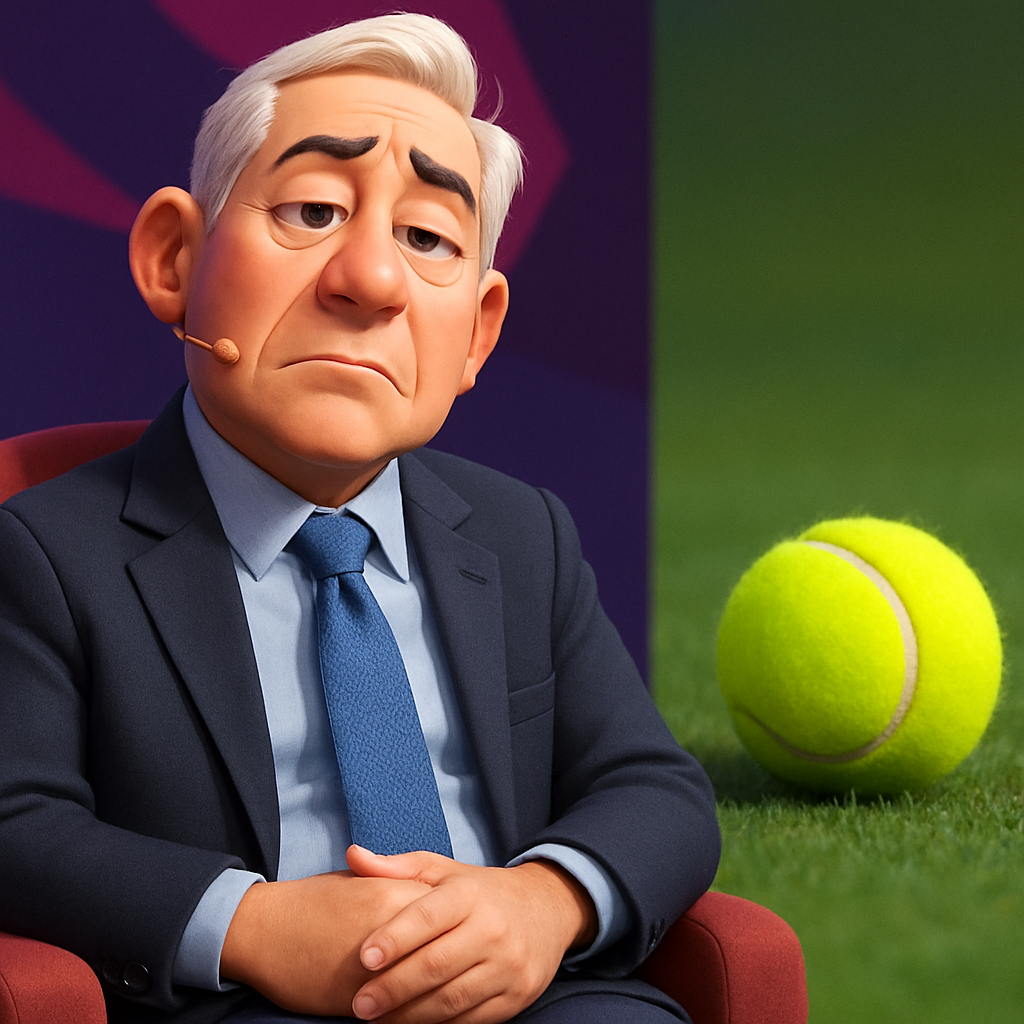NEW YORK — Billionaire investor Bill Ackman made headlines this month not for a Wall Street deal, but for stepping onto the professional tennis court. The Pershing Square CEO, worth an estimated $4 billion, competed in his first ATP Tour match at the Delray Beach Open, revealing the brutal realities of professional tennis in a candid post-match reflection.
Ackman, 57, received a wildcard entry into the doubles draw alongside fellow amateur and venture capitalist Vishal Amin. The pair faced off against ATP veterans Robert Galloway and Hans Hach Verdugo, losing 6-0, 6-1 in just 42 minutes. Despite the lopsided scoreline, Ackman's experience shed light on the staggering gap between elite professionals and even highly skilled amateurs.
The Stark Reality of Professional Tennis
In a LinkedIn post following the match, Ackman didn't mince words: "The level of play on the ATP Tour is just unbelievably good. The speed, precision, and athleticism required is something you can't fully appreciate until you're on the court with these guys." The hedge fund manager, who plays at a 5.0 USTA level (equivalent to a strong college player), described being overwhelmed by the pace and consistency of professional shots.
Key challenges Ackman highlighted:
- The serve speed difference (pros regularly hit 120+ mph vs. Ackman's 90 mph)
- Returning 130 mph serves with precision
- The physical toll of back-to-back points at elite intensity
- Mental pressure of every point mattering in professional scoring
The Financial Equation of Pro Tennis
Ackman's experience underscored the economic challenges facing players outside the top tiers. While stars like Djokovic and Alcaraz earn millions, the majority struggle to break even:
- Ranked 300-500 players often earn less than $50,000 annually
- Travel, coaching, and equipment costs frequently exceed prize money
- Only the top 100 players typically secure sponsorship deals
"When you factor in expenses, most players are operating at a loss until they crack the top 150," Ackman noted, drawing parallels to startup investing where only the top performers generate returns.
Training Like a Pro
For his debut, Ackman underwent an intensive 6-month training regimen with former ATP player Scoville Jenkins. His preparation included:
- Daily 2-hour on-court sessions focusing on serve and returns
- 3x weekly strength and conditioning workouts
- Video analysis of professional doubles strategies
- Mental performance coaching
Despite this commitment, Ackman acknowledged: "The difference between training like a pro and actually being one is astronomical. These guys have been doing this 6-8 hours daily since they were kids."
The Mental Game
Ackman, known for high-stakes financial battles, was surprised by tennis' psychological demands: "In investing, you have time to analyze and adjust. On court, decisions must be made in milliseconds, with no undo button. The pressure is relentless." He described "freezing" on several returns when facing 130 mph serves.
Reactions from the Tennis World
ATP doubles specialist Robert Galloway praised Ackman's effort: "For someone who doesn't do this for a living, he handled himself well. The fact he's out here at 57 shows incredible passion for the game." Tennis Twitter erupted with memes comparing Ackman's net worth to his opponents' career earnings.
The match generated significant attention, with the Delray Beach Open reporting a 25% spike in streaming viewers during the unusual weekday afternoon timeslot. Tournament director Mark Baron noted: "Bill brought new eyeballs to our sport, and that's always valuable."
The Future of Celebrity Wildcards
Ackman's debut reignited debate about wildcard allocations. While some purists argue spots should go to developing professionals, others see value in bringing attention to the sport. The billionaire suggested a compromise: "Maybe have us play qualifying instead, or create special exhibition brackets that don't take main draw slots."
Conclusion: A Humbling Experience
In closing, Ackman reflected: "This experience gave me profound respect for what these athletes do. We throw around terms like 'elite' casually, but true professional tennis exists on another plane entirely. I'll stick to my day job - and maybe the senior doubles circuit in a few years."
The match raised $50,000 for youth tennis charities through a pledge by Ackman based on games won. While his professional record stands at 0-1, the financier's foray into competitive tennis provided rare insight into the sport's brutal realities at the highest level.

